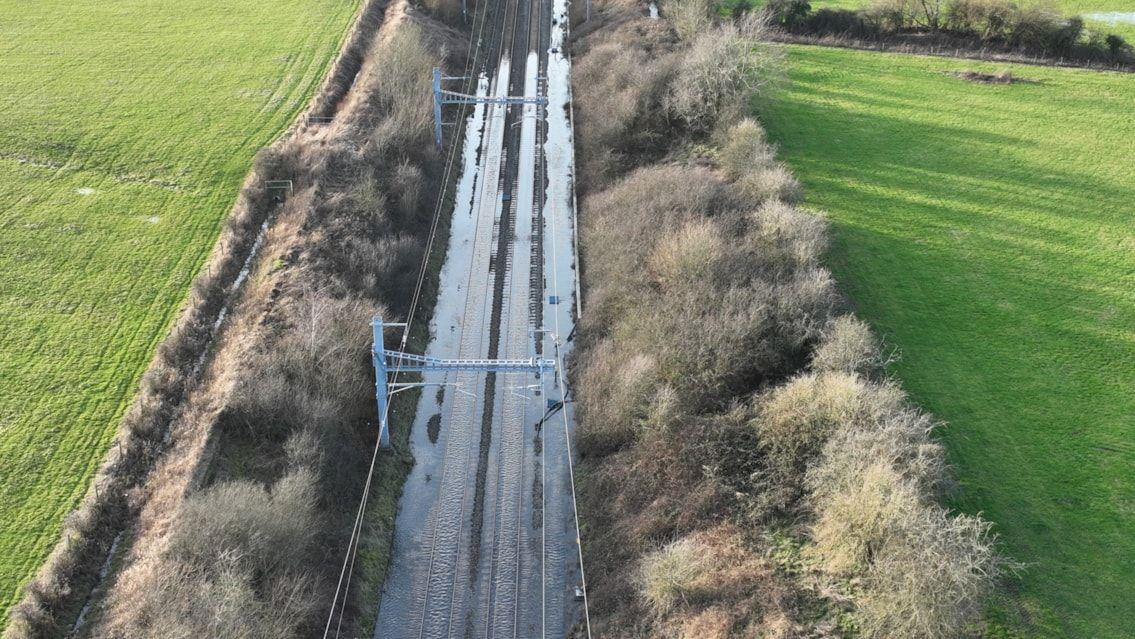Flood Prevention Work Begins on Key Rail Line Between Swindon and Bristol Parkway
Rail passengers are being advised to plan their journeys carefully as a new phase of flood prevention work starts along a critical section of the railway between Swindon and Bristol Parkway. This initiative, led by Network Rail, involves round-the-clock operations in and around the Chipping Sodbury tunnel from 7 to 13 July.
Improving Reliability and Resilience
George Barratt, the project manager for Network Rail, emphasized that the work aims to enhance the reliability of the rail service and make the railway more resilient to flooding. The Chipping Sodbury tunnel, located north of Bristol, was constructed in 1901 and has historically been vulnerable to flooding during wet weather.
To address this issue, a lagoon was installed in 2018 as part of a broader flood alleviation scheme. This project is being carried out in collaboration with several key partners, including the Environment Agency, South Gloucestershire Council, the Farming and Wildlife Advisory Group, and Wessex Water. These partnerships are essential in developing long-term solutions to manage the risks associated with flooding.
Major Engineering Works
The current project involves raising 200 meters of track by 20 centimeters at the western end of the tunnel, with corresponding adjustments to overhead cables. Additionally, drainage channels within the tunnel will be dredged to improve water collection capacity. Two water removal pumps at the western end of the tunnel will be replaced, while surveys and design work will also be conducted for the future replacement of two additional pumps at the eastern end.
GWR station manager for Bristol Parkway, Marcus Deegan, highlighted that this work is part of a larger effort to “ease the effect of flooding on the railway and in the surrounding area.”
Impact on Train Services
During the works, the railway between Swindon and Bristol Parkway will be closed, leading to train diversions via Chippenham and Bath, which will result in longer journey times. Passengers traveling between south Wales and London will experience fewer services, with extended travel times expected on Sunday, 20 July, due to follow-up work.
However, additional peak-time trains will run between London Paddington and Swindon between 7 and 13 July to help manage passenger demand. Mr. Barratt urged passengers to check their journeys in advance to avoid inconvenience.
Ongoing Challenges and Climate Change
Floods have significantly disrupted services across the GWR network in recent years, and the company acknowledges that this issue is likely to persist. “This is definitely a project to make the line more future-proof,” said Mr. Barratt. He explained that the goal is not necessarily to stop flooding but to ensure that passengers and freight can continue moving more frequently.
Mr. Barratt also noted that the increasing frequency of extreme weather patterns, such as wetter winters and drier yet wetter summers, is a direct impact of climate change. “It’s an ongoing battle that we have to face,” he added. “We’re working not just on this section of railway but thinking about how we can keep passengers moving between major stations.”
Broader Collaboration
In addition to engineering efforts, GWR is collaborating with the Environment Agency, local authorities, and wildlife groups to minimize the impact of flooding in the wider area. These combined strategies aim to create a more sustainable and resilient transport system for the future.
Passengers are encouraged to stay informed about any changes to their routes and to plan accordingly. As the railway sector continues to adapt to the challenges of climate change, these flood prevention measures represent a crucial step toward ensuring reliable and efficient rail travel.







